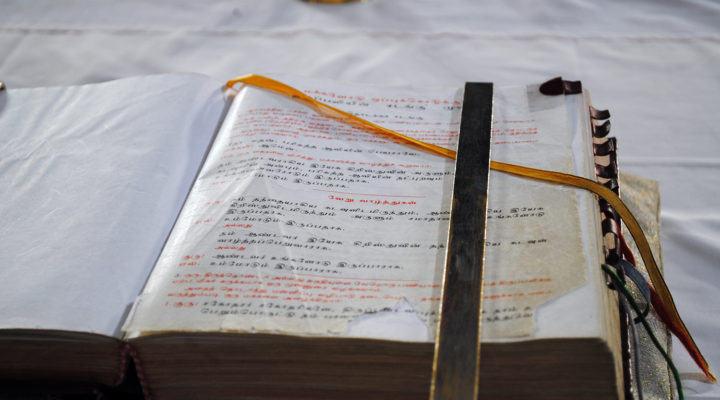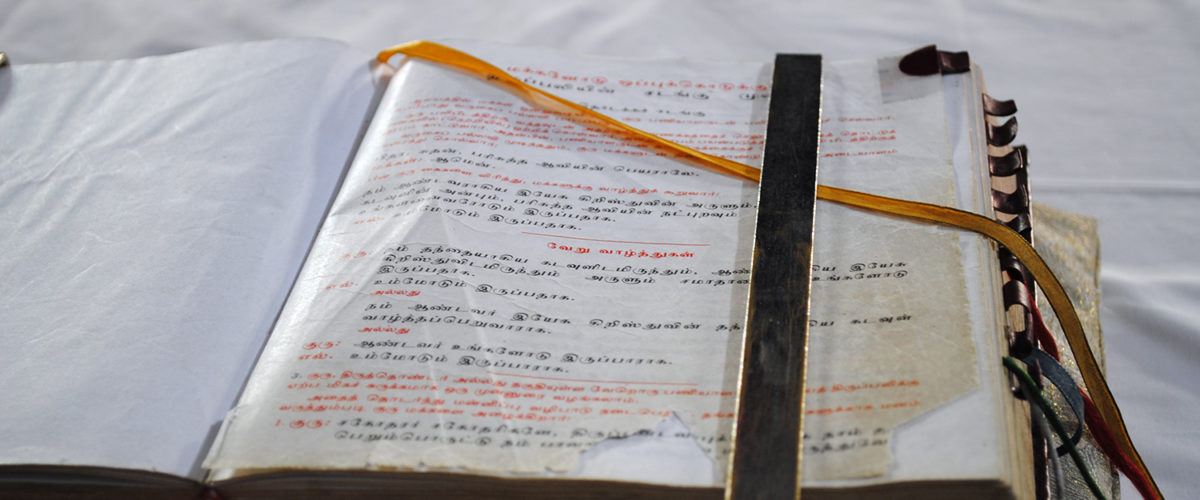Some Baptists and other Protestants doubt the relevance and biblical correctness of using the Christian calendar.
But not Joe LaGuardia, senior pastor at First Baptist Church in Vero Beach, Fla.
LaGuardia said the Christian calendar, as expressed in worship and Scripture readings laid out in the Revised Common Lectionary, held him up when his father was killed from gun violence a few years ago.
Prayer was impossible for him at that time and his grief and inability to focus kept the minister out of the pulpit for more than 30 days.
LaGuardia wrote about the experience in his March 6 Baptist Spirituality blog.
“The liturgy — specifically the hymnody, doxology, and congregational singing — was the only thing that got me through that time of grief and heartache,” he wrote. “If Jesus was hard to find in the midst of tragedy, I certainly found him in the midst of song — of hearing the congregation sing, and in following those notes sprawled across that trusty Baptist hymnal.”
He also shared with Baptist News Global that his views aren’t universally shared by other Baptists, including some in his congregation which is dually aligned with the Cooperative Baptist Fellowship and Southern Baptist Convention.
The Christian calendar varies in content across denominations that use it, generally marking significant holy days and seasons such as Christmas, Easter and Pentecost. Some groups include seasons such as Lent and Advent. Catholics and Episcopalians, among others, also mark feast days to honor saints.
The calendar is then in lectionaries to determine scripture readings, hymns and other elements of worship.

Many churches use Christian calendar for Bible readings, liturgical order and to mark holy seasons. (Photo/Diocese of Arundel and Brighton/Creative Commons)
But the whole thing simply puzzles some Christians who grew up in traditions that didn’t adhere to the calendar and — in many cases — thought it an unwanted holdover from Catholicism.
The pushback LaGuardia said he’s encountered is usually about denominational identity.
“It has more to do with what it means to be Baptist than it is about the calendar,” he said. “They wonder whether it’s not Baptist — or not biblical.”
LaGuardia said he usually responds that some Baptists have historically used the calendar, particularly those in the Charleston tradition known for its set order of worship.
The observance of Lent made it onto the calendar as far back as 130 A.D., he said.
“It has more to do with what it means to be Baptist than it is about the calendar. They wonder whether it’s not Baptist — or not biblical.”
“There are many Baptist churches who do it and many who don’t,” he said.
But LaGuardia said his biggest pitches for the calendar are related its spiritual impacts.
One of these is that it replaces the individual with Christ at the center of faith.
“In the calendar, our lives become about the life and resurrection of Christ, not our day-to-day challenges,” he said.
The rhythm of spirituality and worship contained in the calendar also connects individuals to the story of God in redemption, he said.
Relying on the scripture readings generated by the calendar helps avoid the selfish use of God’s word, LaGuardia said.
“We like to gerrymander the Bible, where we pick and choose our readings,” he said.
And the calendar is multi-church, multi-national and historical, LaGuardia said.
“It’s where God meets us in our little neck of the woods.”



